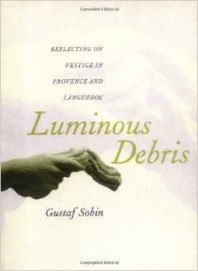 Essays on Language, Longing, & Moments of Desire
Essays on Language, Longing, & Moments of Desire
Carole Maso
Counterpoint ($25)
by Brian Evenson
For Carole Maso, prose writing is elastic and multiform, and we find in all her books a willingness to slide ecstatically between different generic modes, not only of prose but of other forms as well. "My form is always an odd amalgam—taken from painting, theory, film, music, poetry, dance, mathematics—even fiction sometimes." Maso has never been one to try to restrict form, to argue the shoulds and shouldn'ts of generic straightjackets; indeed, she is much less interested in what prose should be than in what it can be. She is interested in the potential of prose, in the direction it can go next. As she suggests in "Notes of a Lyric Artist Working in Prose," "I love most what the novel might be, and not what it all too often is."
For that reason, the strength of Maso's latest book, Break Every Rule, comes in its desire to enable writers and readers to move forward. In the place of the usual creative writing proscriptions and numbered lists of techniques, Maso poses questions intended to loosen the straps that limit our writing and reading. Asks Maso, in the title essay, originally delivered at Brown University's 1994 Gay and Lesbian Conference,
If the creation of literary texts affords a kind of license, is a kind of freedom, dizzying, giddy—then why do we more often than not fall back on the old orthodoxy, the old ways of seeing and perceiving and recording that perception?
For Maso, avoiding falling back on the "old orthodoxy" is closely tied to an attention to language, a willingness to push language into new channels. Indeed, as with French feminists such as Helene Cixous, she sees cultural definitions and oppressions as being tied up with the structure of language:
If we joyfully violate the language contract, might that not make us braver, stronger, more capable of breaking other oppressive contracts?
Might our pleasure, our delight, our audacity become irresistible
finally?
Would celebrating through the invention of new kinds of texts—ones that insisted on our own takes of the world, our own visions, our own realities—would this finally convince both us and others that we are autonomous, we are not them, not exactly, but we are nonetheless joyful and free? In short we too are complex human beings and cannot be so simply reduced or read.
The ten essays collected in this book offer a wide variety of styles and approaches. Some are memorial, eulogizing the musician Gustave Richter or Gertrude Stein. Others speak directly and frankly about books Maso has written, providing insight into her methods and aims. Others are biographical, or walk a line between biography and other modes. Still others are more broadly aesthetic, with Maso willing to declare in vibrant prose against those who set themselves up as tyrants over literature's possibilities: "Wish: that forms other than those you've invented or sanctioned through your thousands of years of privilege might arise and be celebrated."
The most intense moments of these essays, at least for writers, are those that concern themselves with where writing could go, with coming to understand the possibilities of what Maso calls "lyrical fiction." It is a living fiction that fills the gaps between genres, thriving in the cracks of the old orthodoxy's static generic sidewalk. "Lyrical fiction introduces the conventions of poetry (image, metaphor) into a genre dependent on causation and time. Characters, scenes, plots are turned into patterns, designs of imagery. Life and manners are sensually apprehended and then turned into design." Language is not merely a tool but is, as language, "a profoundly sensual experience. Language is emotion, language is feeling, language is body. It is not merely the sign for something, but rather also a thing in itself." Revelatory in their force, many of the essays' declarations approach what it means to write fiction in ways that I find at once dynamic and transformative. What happens, for instance, if instead of fixating on characters' so-called believability we realize that "characters may be perceived as a light or a force or a pressure, or as an aspect of possibility"? How does the novel change if we consider it as "A place for the random, the accidental, the overheard, the incidental. Precious, disappearing things"? Again, Maso is less interested in answering the question than in posing it, hoping we'll each strive for answers of our own as well as uncovering additional questions that will bring the literature into a new space.
Smart, witty, filled with risk and velocity, Break Every Rule is a strong essay collection, one very useful both to those interested in Maso and to those interested in the possibilities of writing. It proves that Maso remains a writer—one of the very few—who continues to write on her own terms, who is genuinely interested in provoking others to do the same.
Click here to purchase this book at your local independent bookstore

Rain Taxi Online Edition, Fall 2000 | © Rain Taxi, Inc. 2000









